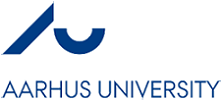Geology

Winter intake start date
2026-02-01
Winter intake deadline
2024-10-15
Introduction
The master's degree programme in geology is for those of you interested in the structure of the Earth, its climate system, water resources, geothermal energy and development of sustainable solutions for the resource needs of modern society (e.g. clean drinking water and supply of energy and minerals). It is for those of you who find it exciting to collect data in the field and/or in a laboratory and interpret geochemical and geophysical datasets from different sample types (soil, water, rocks). You ultimately could use this to derive computer models and/or contribute to solutions to some of the societal challenges.
Geology has a both practical and theoretical approach and involves both lectures, lab work and excursions. You will learn how to analyse a geological problem by setting up a working model, collecting and analysing data, using it in numerical models and producing a scientific report. There are many different topics for specialisation, such as the formation of sedimentary basins and their importance for resource needs, how to find solutions to contaminants in the subsoil, how the climate has evolved through the past, and how to understand the climate in the present and safeguard it in the future. It is also possible to specialise in hydrogeology/geophysics, mineral raw materials and transition to sustainable energy sources.
Teaching in the programme is integrated with research at the highest international level and with a high degree of flexibility that makes it possible for the students to explore their own interests, both in the laboratories and in the field.
We offer the following four specialisations: Water, Climate, Energy and Deep earth systems.
Read more about the specialisations.
The master's degree programme in geology is closely related to the Master's degree programme in, Geophysics, and the two programmes have many joint courses. A background in basic geophysics, calculus, programming and chemistry is assumed.
Students work closely with technical staff and with some of the best Danish and international researchers in the field. Teamwork is promoted to provide a forum for group research and discussion as well as opportunities to collaborate with private companies for research.
The thesis, which is heavily weighted, is a chance for students to tailor their degree to their own personal and career interests while benefiting from close collaboration with fellow students and faculty members.
Career
Graduates in geology from Aarhus University work in both the private and public sectors both in Denmark and abroad, with areas such as:
- Climate challenges
- Water supply
- Environment Purification and protection
- Foundation exploration for offshore wind turbines
- Geothermal energy
- Extraction of gravel, sand and metals
- Product development with geo-materials
- Groundwater mapping
Na studia magisterskie mogą kandydować wszyscy, którzy ukończyli studia licencjackie lub inżynierskie (studia I stopnia), studia magisterskie lub studiują na ostatnim roku studiów I-stopnia. Studia, które planujesz powinny mieć zbliżony profil do tych obecnych lub ukończonych, ponieważ w procesie rekrutacji kluczowa jest ich zgodność programowa.
Wykaz punktów ECTS – osoby, które są jeszcze w trakcie studiów, muszą załączyć wypis punktów ECTS, w którym będzie wykazane, jakie przedmioty były realizowane na studiach oraz ile punktów za nie otrzymano.
Dyplom ukończenia studiów licencjackich lub inżynierskich – jeśli jesteś absolwentem wyższej uczelni, nie potrzebujesz wypisu, wystarczy załączyć dyplom ukończenia studiów wraz z suplementem (w języku angielskim lub oryginał z tłumaczeniem)
Course description - należy przygotować dokument, zbierający cały sylabus ze studiów licencjackich. Takie sylabusy najczęściej są do pobrania na stronie uniwersytetu. Należy je przetłumaczyć na język angielski (można samodzielnie) i złączyć w jeden dokument. Warto też zapytać w dziekanacie uczelni, czy nie dysponują wersją angielską.
Oficjalna skala oceniania Twojej uczelni - możesz dostać taki dokument w dziekanacie Twojej uczelni lub skonstruować samodzielnie. W obu przypadkach dokument powinien zawierać pieczątkę dziekanatu.
Spełnienie wymagań w zakresie języka angielskiego można udokumentować w jeden z następujących sposobów:
IELTS – 6.5
TOEFL – 83 (Aarhus University TOEFL kod - 8935)
Uwaga: wymagania językowe mogą ulec zmianie. Przed wysłaniem aplikacji upewnij się jakie są wymagania językowe na konkretny kierunek bezpośrednio na stronie uczelni.
W przypadku zdawania certyfikatu IELTs upewnij się, czy uczelnia oprócz wymagań oceny końcowej nie ma również wymagań odnośnie ocen cząstkowych.
You can be admitted to the master's programme if the university assesses that your education has a level, scope, and content that corresponds to the academic requirements specified below.
| Subject area | Number of ECTS |
Subject components within geology Including at least 10 ECTS within each of the following topical areas:
| 60 |
Fundamental subject components within the majority of the following topics:
| 30 |
| Total | 90 |
